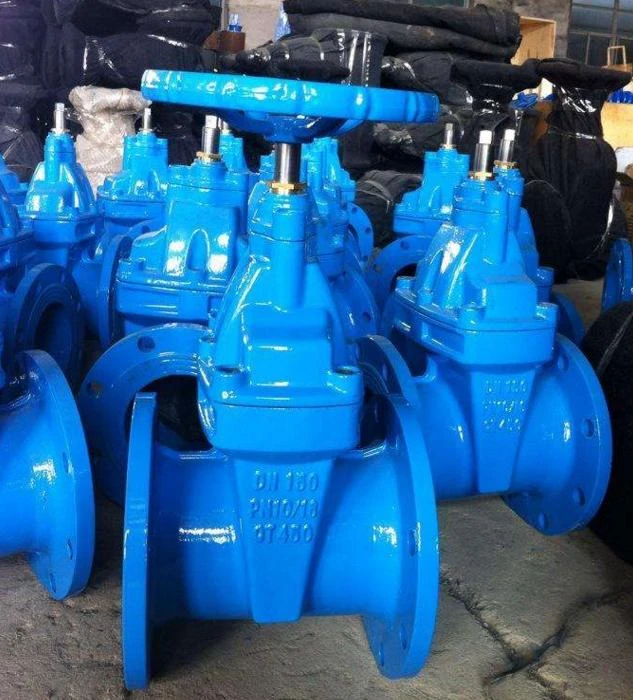Samh . 10, 2024 13:24 Back to list
Controlling Flow with Gate Valves for Effective On-Off Operations
The Importance of Gate Valves in On/Off Applications
Gate valves are essential components in various industrial and commercial applications where the control of fluid flow is paramount. These valves are primarily utilized in on/off services, making them indispensable for systems requiring rapid shut-off or full flow capability. Understanding the functionality, advantages, and applications of gate valves can help professionals make informed decisions when designing or maintaining fluid systems.
What is a Gate Valve?
A gate valve is a type of valve that opens or closes by lifting a gate out of the path of the fluid. Unlike globe valves or ball valves, which can throttle flow, gate valves are designed to provide either a full open or a full closed position. This characteristic makes them particularly well-suited for applications where a complete shut-off is necessary, such as in water supply systems, oil and gas operations, and chemical processing.
How Gate Valves Work
Gate valves operate by using a linear motion to control flow. The valve body houses a gate, which is typically made of metal, and is raised or lowered by a handwheel or an automated actuator. When the gate is lifted, fluid can flow uninterrupted. Conversely, when the gate is lowered, it blocks the fluid flow entirely. The mechanism allows for low-pressure drop, making gate valves preferable for applications where minimal resistance is needed when fully open.
Advantages of Gate Valves
1. Full Flow Capability One of the significant advantages of gate valves is their ability to provide a direct path for fluid flow. When open, the gate valve offers almost no resistance, minimizing the pressure loss.
2. Durability Gate valves are designed to endure harsh conditions, making them suitable for high-pressure and high-temperature applications. They are typically made from robust materials like cast iron, brass, or stainless steel, contributing to their longevity.
3. Simplicity of Operation Their straightforward design means that gate valves are relatively easy to operate. They require less maintenance compared to other valve types, which contributes to cost savings over time.
gate valve on off

4. Versatility Gate valves can be used in various applications. From municipal water systems to petrochemical processes, they can handle a wide range of fluids, including liquids and gases.
Applications of Gate Valves
Gate valves are widely used across many industries due to their reliability and effectiveness in on/off service.
- Water Supply Systems In municipal water systems, gate valves allow for the secure isolation of sections of pipelines for maintenance or emergencies. - Oil and Gas In upstream and downstream operations, gate valves control the flow of crude oil, natural gas, and refined products, contributing to the overall safety and efficiency of these systems.
- Chemical Processing Gate valves are employed in chemical plants to isolate reactors, tanks, and pipelines, enabling safe handling of corrosive and hazardous materials.
Considerations When Choosing Gate Valves
While gate valves have many advantages, selecting the appropriate type can depend on the specific application requirements. Factors such as fluid type, pressure, temperature, and the potential for cavitation should be considered. Additionally, since gate valves are not well-suited for throttling, they are best employed in situations where they will be used in a fully open or closed position.
Conclusion
In summary, gate valves serve as critical tools in managing fluid flow across various sectors. Their straightforward design, durability, and ability to provide a complete shut-off make them ideal for on/off applications. By understanding their functionality and advantages, engineers and operators can effectively implement gate valves in their systems, ensuring optimal performance and safety in fluid management processes.
-
Why Metric Trapezoidal Thread is Ideal for Precision Motion ControlNewsAug.05,2025
-
The Unique Properties of a Block of Granite for Industrial UseNewsAug.05,2025
-
The Role of Flanged Y Strainers in Preventing Pipeline ClogsNewsAug.05,2025
-
The Importance of Regular Calibration for Master Ring GagesNewsAug.05,2025
-
How a Cast Iron Surface Table Enhances Accuracy in ManufacturingNewsAug.05,2025
-
Comparing Different Check Valve Types for Optimal Flow ControlNewsAug.05,2025
Related PRODUCTS









